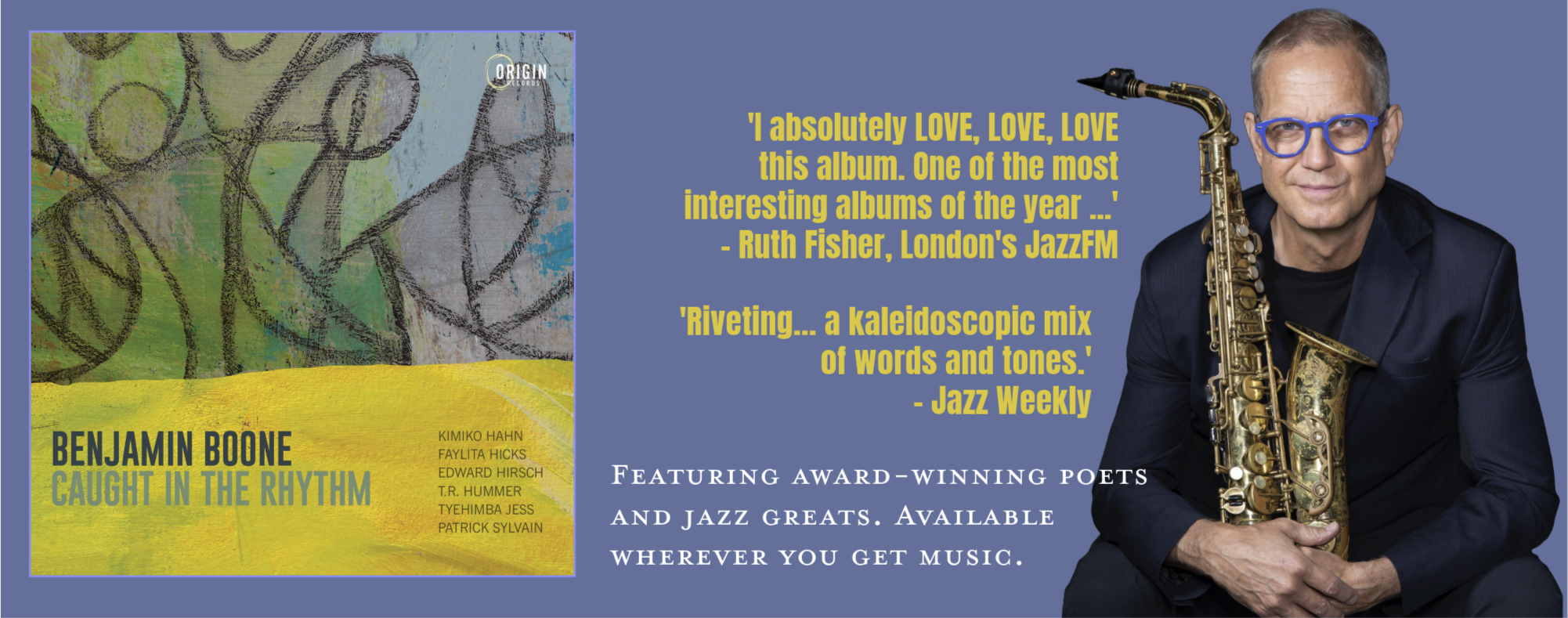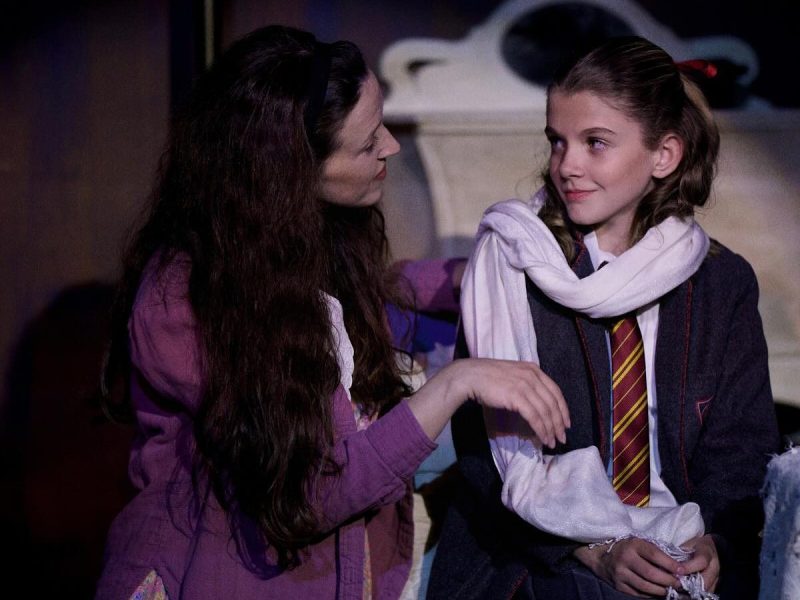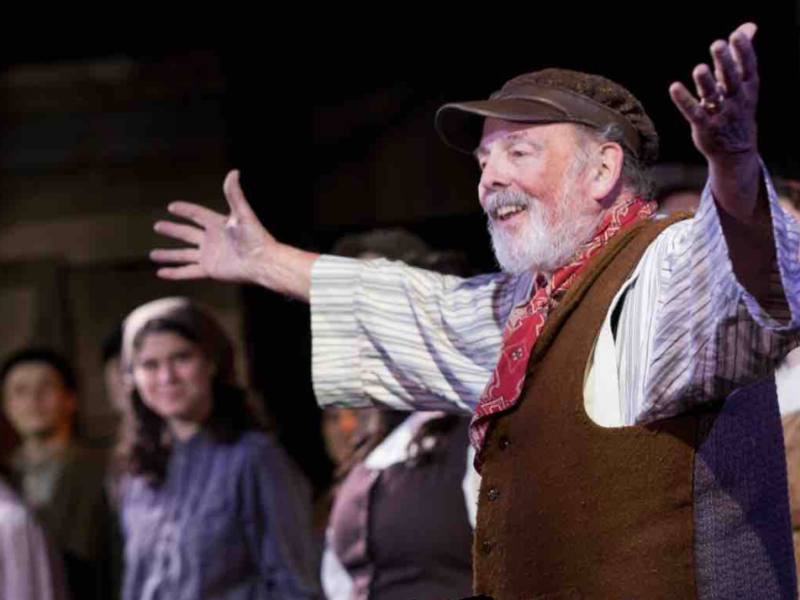Heidi Blickenstaff is staying home, and she wants GenZ-ers to be there, too
Heidi Blickenstaff wasn’t happy when she learned that one of her nephews was breaking coronavirus quarantine.
And who can blame her? Blickenstaff has been ensconced for weeks in a Manhattan apartment while the coronavirus epidemic rages around her.
Pictured above: A scene from Broadway Because’s new public service announcement.
The Broadway and TV musical-theater star has a long potential list of things to worry about: her personal safety and that of her husband, entertainment lawyer Nicholas Rohlfing; the health of New York friends and colleagues, several of whom have been battling COVID-19; and the general anxiety that many of us have about how live performance is going to fare in a post-quarantine world.
Still, the nephew thing pushed a button.
A major button.
Coming Monday: Heidi Blickenstaff appears on ‘The Munro Review on CMAC.” Her interview includes a special shoutout to Good Company Players.
“When we learned he was not obeying the stay-at-home order, it really worried us,” says Heidi, whose resume includes “[title of show,]” “The Addams Family” and “Something Rotten!” on Broadway and the leading role in the Disney movie “Freaky Friday.” (She is fiercely proud of her Fresno roots and her start at Good Company Players at age 7.)
One night, while she and her husband were making turkey chili, they decided to do something to convince teenagers the importance of staying home.
“We know so little about this virus, but one thing we do know is that it’s wildly contagious, and it doesn’t seem to be affecting kids and young adults,” she says. “In one of the NPR podcasts that I listen to, I heard a doctor say that young people are the perfect limousine service for the virus. They don’t know if they’ve contracted it because they have mild to no symptoms, they don’t want to stay put, and they travel to many different social groups, potentially spreading the virus without even knowing it.”
She knew that the last thing teenagers want is yet another adult celebrity preaching at them. That’s when she hatched the idea of making a public-service announcement featuring GenZ-ers talking to their peers.
The PSA is viewable on the GenZStayHome YouTube channel. The project is the first from their new non-profit organization, Broadway Because.
VIDEO: GENZSTAYHOME
Heidi and Nicholas wrote a script and put out a call for short, self-shot videos from the 14-22 age demographic. They received more than 300 submissions from GenZ-ers from nearly all 50 states and beyond.
“We got drama kids, we got athletes, we got kids from all economic backgrounds, LGTB+ kids, 2E kids, Florida kids, California kids, farm kids, city kids, you name it, they showed up in our Dropbox,” she says. “And that was our dream. It’s not one kind of GenZ-er that’s not obeying the order. It’s every kind.”
They turned to their contacts in the Broadway world for help. The spot was co-produced and edited by HMS Media, with whom Heidi had worked on the acclaimed PBS special “First You Dream: The Music of Kander & Ebb.”
The PSA features dozens of heartfelt pleas from GenZ-ers, many of them involved in theater, talking about why it’s important to follow quarantine guidelines about social distancing.
“I’m staying home because I want to set a good example for my friends,” one says. “I’m staying home because my dad is a first responder,” says another.
The video debuted a couple of weeks ago, and Heidi has fingers crossed. She’s a practical gal. This isn’t a problem that one PSA is easily going to fix.
“My greatest wish for this thing is that we will actually make a handful of those rebellious GenZ-ers change their behavior,” she says.
◊ ◊ ◊
For me, a chance to talk with Heidi, for whatever the reason, is always an occasion. I’ve followed her career avidly over the years, and she’s always been very generous to her “hometown newspaper.” (Which I don’t work for anymore, but that’s a technicality.) This is the first time, however, that we are talking about an emotional issue rather than a new project she’s involved in. I’m impressed with her passion for the project, her concern for her nephew and her resolve to make a difference.
As the pandemic drags on and people increasingly chafe about social distancing, she has her work cut out for her.
A few hours after our phone conversation, I walk over to Fig Garden Village with my dog, Tillie, for our usual circuit past the mostly closed businesses and restaurants. Over the past few weeks, I’ve noticed activity ticking up as the weather grows warmer. A clump of Comcast trucks gathers in the middle of the parking lot at lunch some days, the workers gabbing over sandwiches. They stand close together without even thinking about it. A few parking rows over, middle-aged women meet up with lawn chairs and (sort of) sit the required 6 feet apart from each other. Mini-crowds congregate in front of Jamba Juice and Cold Stone Creamery, with ice-cream eaters scattered on nearby benches.
The Munro Review has no paywall but is financially supported by readers who believe in its non-profit mission of bringing professional arts journalism to the central San Joaquin Valley. You can help by signing up for a monthly recurring paid membership or make a one-time donation of as little as $3. All memberships and donations are tax-deductible.
And, on this day, there are the boys on bicycles.
There are at least eight of them, and they strike the universal pose of teenagers hanging out everywhere — standing close together, laughing and joshing at each other, loud and jubilant.
I think about Heidi.
A Fig Garden security guard stands nearby. I walk up — standing farther away from him than seems socially normal — and gently ask if there’s anything he can do to urge the boys to break it up. He sighs. Other than a reminder about shelter-in-place rules, the city order doesn’t have much enforcement teeth.

“It’s a public space,” he says.
A few moments later, one of the boys — a gregarious and curious chap — rides his bike close to me and asks about Tillie. He’s polite. He calls me sir.
After exchanging pleasantries, I ask him if he knows about social distancing and how important it is to keep the virus from spreading.
“Have you seen what’s happening in New York?” I ask. “It’s awful. There are so many people dying. If you catch the virus from your friends, you might not get sick, but you could pass it on to your mom or grandma.”
He thinks for a moment, as if he’s startled that a perfect stranger has suddenly turned parental on him.
“My grandma’s tough,” he says cheerfully, and rides away.
When I get home I send Heidi a return email and tell her about the conversation.
“Ugh,” she replies. “THAT’S what I’m talking about. It’s so frustrating.”
Where are those boys’ parents, and why are they allowing their children to roam?
◊ ◊ ◊
COVID-19 has hit Broadway’s tight-knit artistic community hard. Nick Cordero, 41, a Tony Award-nominee for “Bullets Over Broadway,” continues to battle for his life. (He’s had one leg amputated and has severe lung damage, but as of this writing, he appears to be slowly recovering.)
“I have many friends that either have the virus or they are recovering,” Heidi says. “Some got it so badly they had to go to the hospital and others were able to fight it from home. For those home-bound and sick friends, I’ve been checking in with them daily.”
When shows were still running, conditions were ripe for the coronavirus to spread. Backstage areas in old theaters are tiny. People share everything. When actors project on stage, they often spit out their words.
One hard-hit show was “Moulin Rouge.” The virus spread through the cast. Among the hardest hit in March was Tony Award-nominee Danny Burstein, who shared his harrowing experience in a guest column for The Hollywood Reporter.
Heidi, a friend of Burstein’s, saw him and gave him a big hug just a few days before he found out he was COVID-positive. She didn’t catch it, thankfully.
Through it all, New York has been a surreal place.
“I feel like I’m going to tell my grandchildren someday about this time, like people told stories about what they went through during World War II. I find that I’m crying a lot. I’m exhausted and sensitive, and we all just continue to roll with the reality of this.”
Like everyone in the Broadway community, her work and social world has come to a halt. She had to cancel three upcoming concerts, master classes and two workshops for new musicals. (“One thing that had a lot of momentum, I can’t talk about,” she says).
“A lot of us worry in the theater industry,” she says. “Once we get back out there, what’s going to happen? Will we be going back to work for a fraction of what we’re used to getting paid? Will people still want to sit in cramped theaters?”
◊ ◊ ◊
But those are questions for the future. The immediate issue — and, yes, it is still an issue — is convincing people to stop spreading the virus. Even as the number of deaths nationwide approaches 70,000, it’s clear that people across the country are chafing at lockdown restrictions.

Donations to Broadway Because, Heidi Blickenstaff’s new non-profit organization, are welcome at genzstayhome.org.
“Unfortunately, now we seem to be in a phase of this pandemic where it’s not only the GenZ-ers who don’t want to stay home, but many adults as well,” Heidi says. “I’m very afraid that if we rush the return to business-as-usual in an effort to stimulate the economy, we could be facing more loss of life. And, literally my friends and colleagues are fighting for their lives and dying.”
Which is why Heidi made her PSA. She’s genuinely worried about her nephew.
There’s a hint of irony here in that you could argue that Heidi’s industry — the overall entertainment-industrial complex — is at least partially responsible for our societal impatience. We are acculturated in stories that come to rousing, emphatic endings. Plots are supposed to be resolved on TV in 30 or 60 minutes. In movies or on the stage, things should wrap up in two hours — or two and a half, tops, right? (Or maybe play to younger audiences by skipping the intermission and going for a breezy 90 minutes.) Our narrative instincts want closure, and we want it now.
That doesn’t look like it’s going to happen, unfortunately.
But humans are also resilient. Heidi says that the nightly 7 p.m. display of appreciation for New York City’s healthcare workers brings a lump to her throat every time. sessions for the city’s emergency workers. First you hear a single clap. People open their windows and join in. Pots and pans, cheers and whistles, shouts and horns.
“This is an unprecedented time, and New York City is at the epicenter,” Heidi says. “Sometimes I have great anxiety and concern about our future, but making this PSA has been very good medicine. Not only has it filled our days, but it has given us great purpose. I just hope to God it actually will save some lives.”









